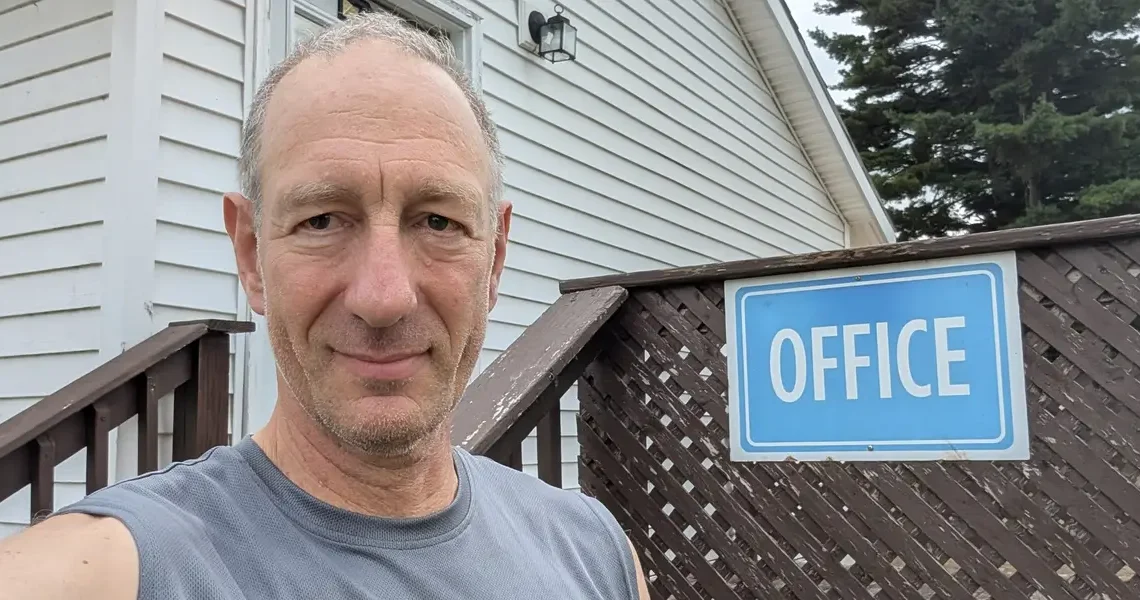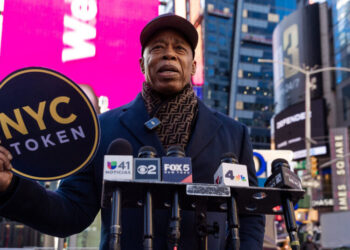From my 30s to my early 50s, I was a tax lawyer in Big Law, Big Four Accounting firms, and banks.
I’ve given talks at tax-policy panels, sat on a trading floor, made $400,000 a year, and had an expense account.
During baseball season, I took clients to the VIP section of Yankee Stadium and sat behind home plate. My parents grinned when people asked them, “What does your son do?”
There was a problem, though. I was miserable.
Eventually, I stepped back from law entirely to run mobile-home parks
Big Law paid well, and it solved the cocktail-party question, but I always felt something was missing.
The hours were brutal. I was always on, 24/7. I couldn’t touch, feel, or smell the product of my work. I struggled with the politics and zero-sum outcomes.
In 1999, three years out of law school, my wife and I bought a two-family house in Brooklyn. It was a few subway stops from my office but felt like it was a world away.
We lived downstairs and rented out the upstairs apartment. I found dealing with tenants and doing simple repairs rewarding.
When I painted a wall or fixed a pipe, I could immediately see the product of my work. And I didn’t have to send memos into the void or polish any apples to collect the rent checks.
Real estate, I thought, might be my ticket out. In 2013, I purchased a mobile-home park in central New York and began running it as a side hustle.
I did not choose manufactured housing for romantic or social-justice reasons. I chose it out of desperation — I’d read once that mobile-home parks have a high return on investment.
In 2015, the group at the bank where I worked was let go. I went to a law firm for a few years, but my heart wasn’t in it. In 2018, I bought another park, this time in northern New York.
A year later, I left the firm. I’m a full-time park owner now, and my law school diploma is somewhere in storage (where, exactly, I don’t know).
Since changing careers, I’ve taken on a lot of responsibilities and roles
My life has changed since I made the jump.
In Big Law, I was one of thousands, with a large support system. Now, though I have on-site managers at each park, I’m the only pencil-pusher and decision-maker.
I generally serve as the legal, accounting, IT support, janitorial, and marketing departments. I vet new software products, review resident applications, hire lawyers, evaluate bids for work, and pay process servers.
Each year, I print and collate hundreds of leases and copies of park rules, then stuff them into envelopes, stamp them, and make sure they’re delivered. If I screw up the pagination, I repeat the process.
In certain firms where I worked, more energy was spent on ducking blame than on getting things right. Now, I don’t have that luxury. If I buy a bad home or damage a water meter, I acknowledge the mistake, learn from it, fix the problem, and move on.
I’ve also assumed a lot more financial risk. In the corporate world, I was a W-2 employee with a fairly consistent income.
Now, I deal with higher stakes and more inconsistency. When a pipe bursts, regulations change, or property taxes or interest rates go up, I’m on the hook.
I can’t control interest rates, government policies, and many other outside factors that may impact the value of my properties, so I just have to live with them.
Though I make less than I did as a lawyer, I still live comfortably. In an average year, I can expect to take home a little more than what a high-school principal does, but no year is average.
On the bright side, my role comes with flexibility. I live a four-hour drive away from the parks, which each have an on-site manager.
In theory, I could run them remotely. In practice, I visit the parks once a month — they’re my babies, so I want eyes on them.
Plus, I need to manage the managers. I ask them to work hard, so it’s only fair for me to show that I care enough about what they do to periodically drive up and check in.
I’ve learned so much, and it’s nice to feel like what I do truly matters
Because I make a lot of mistakes, I end up learning a lot, like how septic systems work and how a manufactured home is blocked, leveled, tied down, and skirted.
I’ve figured out how to weigh the risk of renting to someone with a scratch-and-dent credit history, when to show flexibility with a resident who’s short on payment, and when to stand firm.
I’ve worked with my property managers to have electrical grids upgraded, stormwater drains dug, and homes rehabilitated. I even learned how to use an excavator, though I’m still not good at it.
All in all, the parks are different from when I bought them.
Before, I helped rich clients shuffle money. Now, I help provide clean, safe, and affordable housing to people who need it. It’s a greater reward than anything I ever got on Wall Street.
Read the original article on Business Insider
The post I left my six-figure law job and bought a mobile-home park. Despite the drawbacks, I’m happier and still live comfortably. appeared first on Business Insider.




